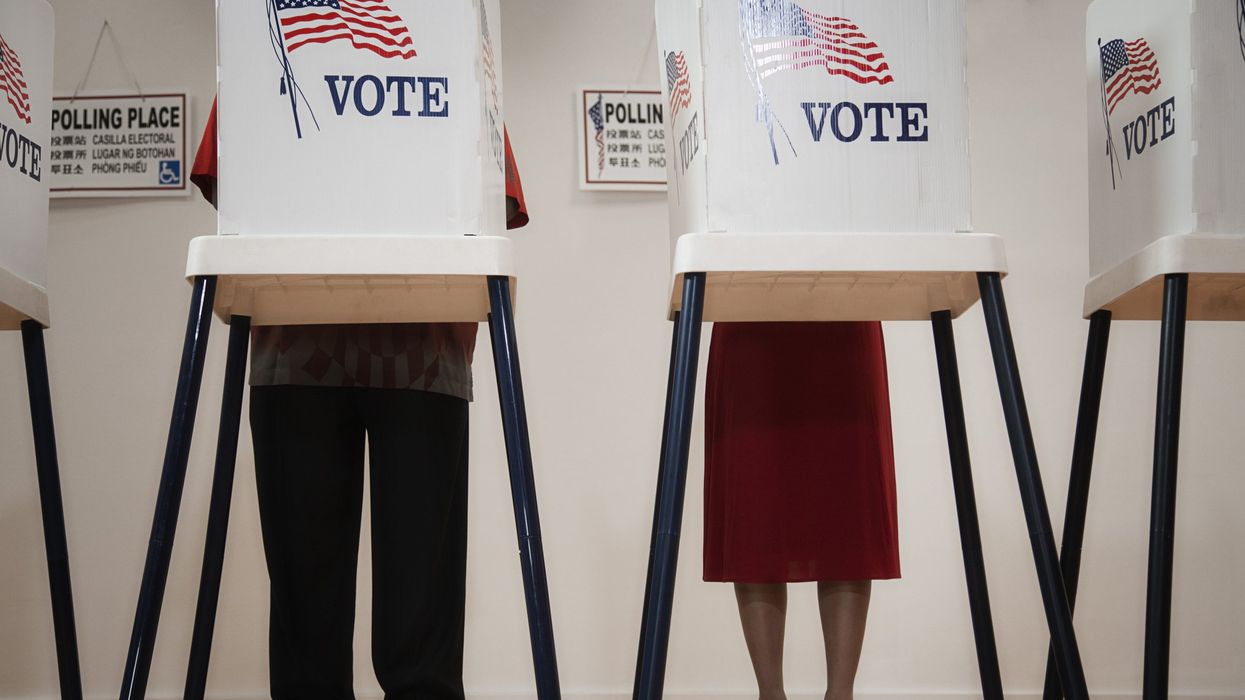Election night felt like the big reveal, when the nation’s collective aspirations and frustrations were colorized on Steve Kornacki’s all-knowing map declaring, “America has spoken”. Yet, in the days that followed, as I sifted through post-election analysis in search of answers about the new state of national identity, one lingering truth stuck out: voting behavior tells us much about which candidates we prefer but extraordinarily little about who we are as human beings.
For all the insight we can gather from the new configuration of red and blue, the limitations of what a vote communicates–and what it doesn’t–are just as important as the results. Understanding those limitations is crucial for how we show up in the world and connect with one another once the dust settles.
Stories Behind the Vote
While post-election assessments of political phenomena may satisfy cravings for order amid the chaos, they seldom capture the depth of human stories and political motivations.
For instance, one Lutheran pastor I spoke with believes that the Republican Party is the only viable anti-war party, though he detests their rhetoric. Another friend praised Trump’s negotiation skills for the benefit of national security but voted entirely for progressives in down-ballot races. Meanwhile, a liberal-leaning friend left the presidential bubble blank due to Governor Walz’s handling of school closures during COVID and the mental health toll that it took on a member of his family.
Though anecdotal, these personal stories scrambled my certainty in neatly-packaged narratives about the GOP success and Democrat failure. Voters are more complicated; their choices often reflect competing priorities rather than wholehearted enthusiasm. Many people place their hopes for a better future elsewhere, beyond the candidates’ names they check.
The Myth of Voting as Self-Expression
In American culture, voting is elevated to a nearly mythical status – a sacred act of self-expression. But as Michael Wear points out beautifully in The Spirit of Our Politics:
“ We often think about politics as a forum for self expression and self actualization, for the exertion of our personal will, but politics, especially voting, rarely even approaches that because political decisions come to us premediated and multivariable…our vote is not an unmediated pure expression of our identity; instead our vote is a choice between options we did not choose ourselves.”
Voting, particularly in the constraints of our horse-race-style, two-party system, reflects preference, not the entirety of a person’s values or identity. Our daily acts motivated by community — not winning— are better representatives of our priorities. The active choice to make new friends in an adult rec-sports league, take a volunteer shift at church, serve as a poll worker, or even elevate more nuanced narratives on social media—these are forms of civic duty more vital for the health of American democracy than driving up voter turnout, zero-sum.
Who we elect is enormously consequential, and access to the ballot has been fought and bled for—this must be cherished. However, by putting the significance of the ballot into perspective and emphasizing the more unsung forms of civic life, we set the table for a healthier, more pluralist political culture.
Reject Simplistic Narratives
The paradoxical data emerging from the 2024 election presents an opportunity to evaluate our understanding of voters’ values and priorities. How did 54% of Latino Evangelicals support Trump despite his disparaging rhetoric about Hispanic immigrants? Why did so many Muslim voters in Michigan vote for Trump without hearing him express concern for the horrors happening in Gaza?
In light of those paradoxes and despite them, we must resist the temptation to oversimplify their motivations. It is more expedient and requires less humility to say half the nation is simply uninformed or only cares about the price of groceries. That same critique applies to the assumption that Americans are wholly exhausted with conversations about equity and inclusion, or sick of bankrolling Ukraine’s defense effort against Russia. Convenient generalizations make it harder to see our shared values–the basis of cooperation needed to tackle shared challenges.
At the recent Obama Foundation Democracy Forum, Barack Obama highlighted the complexity of our electorate and the moment’s opportunity for pluralism: "We have to acknowledge that we all have multiple identities. Recognizing and listening for those multiple identities… being open to the fact that even the folks we disagree with most might have something that surprises us — that's an opportunity we cannot afford to miss."
It takes curiosity and humility to see others as whole people, not as caricatures. By understanding the complexity behind a person’s vote, we create fertile ground for more courageous political discussions and, ultimately, better results for the nation.
Ask a Better Question
In the days ahead, let us allow our neighbors, whoever they voted for, to teach us about themselves. To build bridges across differences, assuming a level of good faith in others is paramount, even in the face of heightened moral stakes and legitimate fears. This approach doesn’t ask for the abandonment of convictions, but it does rely on a willingness to find shared humanity in unexpected places.
Curiosity is the default setting of a pluralist. Instead of asking, ‘Who did you vote for?’, try, “ What are your hopes for yourself, your family, and this nation?’ By choosing curiosity over caricature and acknowledging the limitations of what our vote says about who we are, we create the conditions for trust and cooperation to tackle the challenges ahead – together.
Rollie Olson is the Democracy & Bridgebuilding Program Manager with Interfaith America.



















 From left to right: Gabriel Cardona-Fox, Bud Branch, Joe Concienne
From left to right: Gabriel Cardona-Fox, Bud Branch, Joe Concienne 
Trump & Hegseth gave Mark Kelly a huge 2028 gift